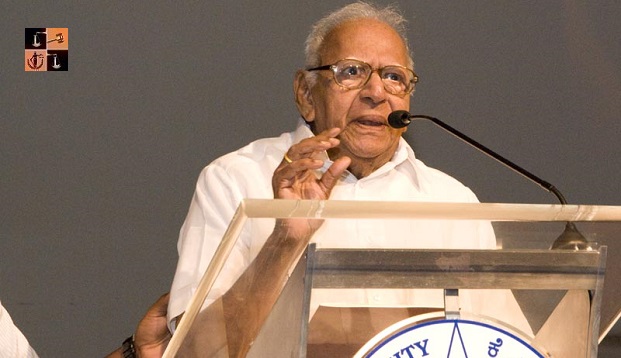Supreme Court judges Surya Kant and KV Viswanathan on Saturday paid rich tributes to the late eminent jurist and former top court judge, justice VR Krishna Iyer, during an event marked by reverence for justice Iyer’s legacy and his jurisprudential brilliance.
While justice Kant shared how the late judge’s philosophy on the expansive interpretation of Article 21 of the India Constitution consistently influenced his decision-making in courts, justice Viswanathan called justice Iyer a “one-man pressure group” with exceptional progressive views and judicial activism.
Attorney general R Venkataramani delivered a lecture on the theme “In Search of Being Right: Citizens, Governance & Courts,” emphasising the invaluable contributions to the Indian judiciary by justice Iyer.
Speaking at the event organised by OP Jindal Global University and Jindal Global Law School, justice Kant, who is in line to become the Chief Justice of India in November 2025, called justice Iyer a “messiah of masses”, adding the principles evolved by the late judge through his verdicts have become an indelible and inseparable part of the constitutional mortality.
Justice Kant recalled some of justice Iyer’s outstanding verdicts on the right to life and liberty under Article 21 and highlighted the latter’s endeavours to strengthen the victims’ rights in India and the compulsory recoupment by the wrong doer of the damaged.
“I feel Indian jurisprudence will continue to grow under the guidance and by following the principles of liberty, human rights and constitutional and morality that justice Krisha Iyer promoted throughout his tenure,” emphasised justice Kant.
Sharing his reflections on the contributions of the late judge, justice Viswanathan said that justice Iyer through his pronouncements laid down the pathway to legislative changes in the form of various enactments including the Environment Protection Act, 1986, Copyright Amendment Act, 2012 and amendment in the Code of Criminal Procedure (CrPC) that granted rights to a victim to file an appeal against an order of acquitting the accused.
“Justice Iyer has always been far ahead of his time. Justice Iyer has been a torchbearer, a pioneer, a driver for legislative and social change, a one-man pressure group to give direction for policy change,” said justice Viswanathan, who is slated to take over as the CJI in August 2030.
The judges underlined that justice Iyer’s much-quoted remark - “Bail is the rule, jail is an exception” in a 1977 judgment remains the edifice on which the criminal justice system should stand, while adding that his judgments dealing with the issues of fundamental rights, plight of undertrial prisoners and commitment to social justice exalted the status of the Indian Supreme Court.
Attorney general Venkataramani’s lecture delved into the intricate relationship between citizens, governance and the judiciary. With a focus on the pursuit of justice, he explored the evolving role of courts in safeguarding the rights of citizens and ensuring good governance as he highlighted justice Iyer’s brilliance as a judge and as a person and his commitment to social justice.
The A-G also reflected on justice Iyer’s principles and ideals, emphasising the enduring relevance of his vision in contemporary legal discourse and the ongoing quest for justice. He underscored the profound impact of the visionary jurist on India’s judicial system and the imperative of upholding justice in society.
Supreme Court judge CT Ravikumar also offered his thoughts on justice Iyer’s bail jurisprudence tenets.
Justice Iyer, a former legislator who also served as a minister in the Kerala government, was elevated as a judge in the Supreme Court in 1973 and retired after a tenure of seven years. He passed away in 2014 at the age of 99.
(Only the headline and picture of this report may have been reworked by the LatestLaws staff; the rest of the content is auto-generated from a syndicated feed.)
Source Link
Picture Source :


























